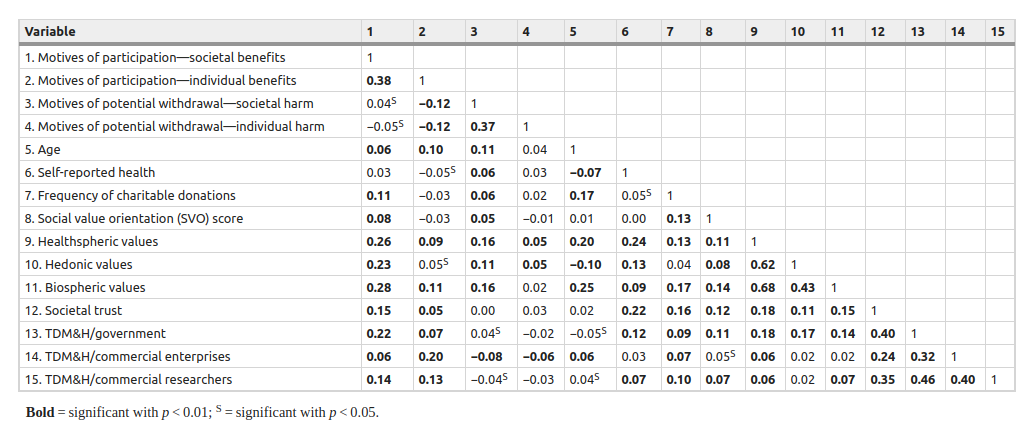Data repositories, like research biobanks, seek to optimize the number of responding participants while simultaneously increasing the amount of data donated per participant. Such efforts aim to increase the repository’s value for its uses in medical research to improve health care, especially when data linkage is permitted by participants.

Pearson’s correlations between motives for participation and (potential) withdrawal and intrapersonal characteristics
The authors of this paper investigated individuals’ motives for participating in such projects and potential reasons for their withdrawal from participation in a population-based biobank. In addition, they analyzed how these motives were related to various characteristics of the participants and their willingness to permit data linkage to their personal data for research. These questions were explored using a sample of participants in the Dutch Lifelines biobank (n = 2615).
Motives for participation in and potential withdrawal of participation from a biobank can be differentiated into –
- Those relating to societal benefits and harm and
- Those relating to individual benefits and harm
In addition, these motives are differently associated with participants’ demographic and intrapersonal characteristics. The data suggest that the tendency to withdraw from participation could be countered by inducing perceptions of more individual benefits in the case of perceptions of limited societal benefits and low, narrow levels of trust in society.
